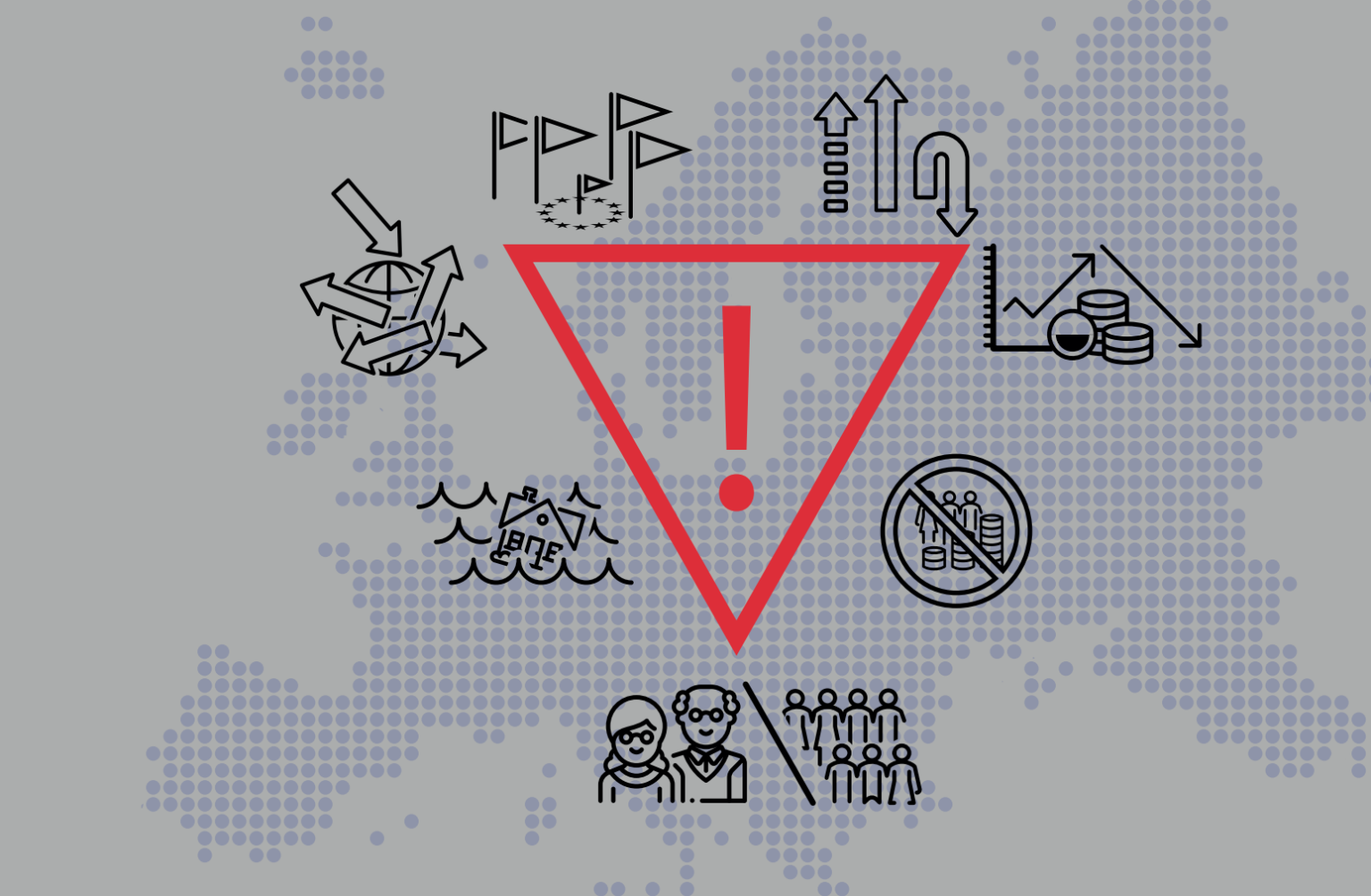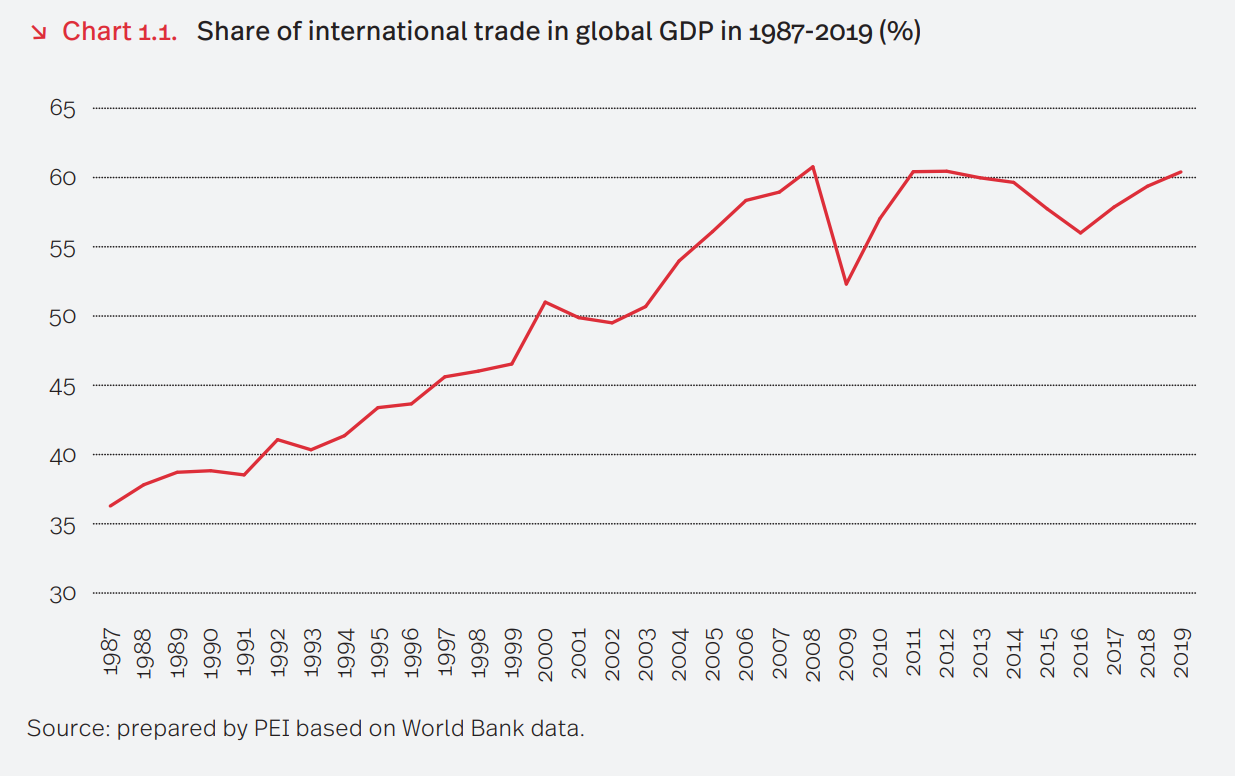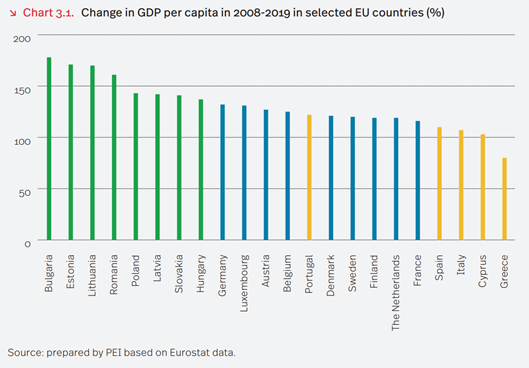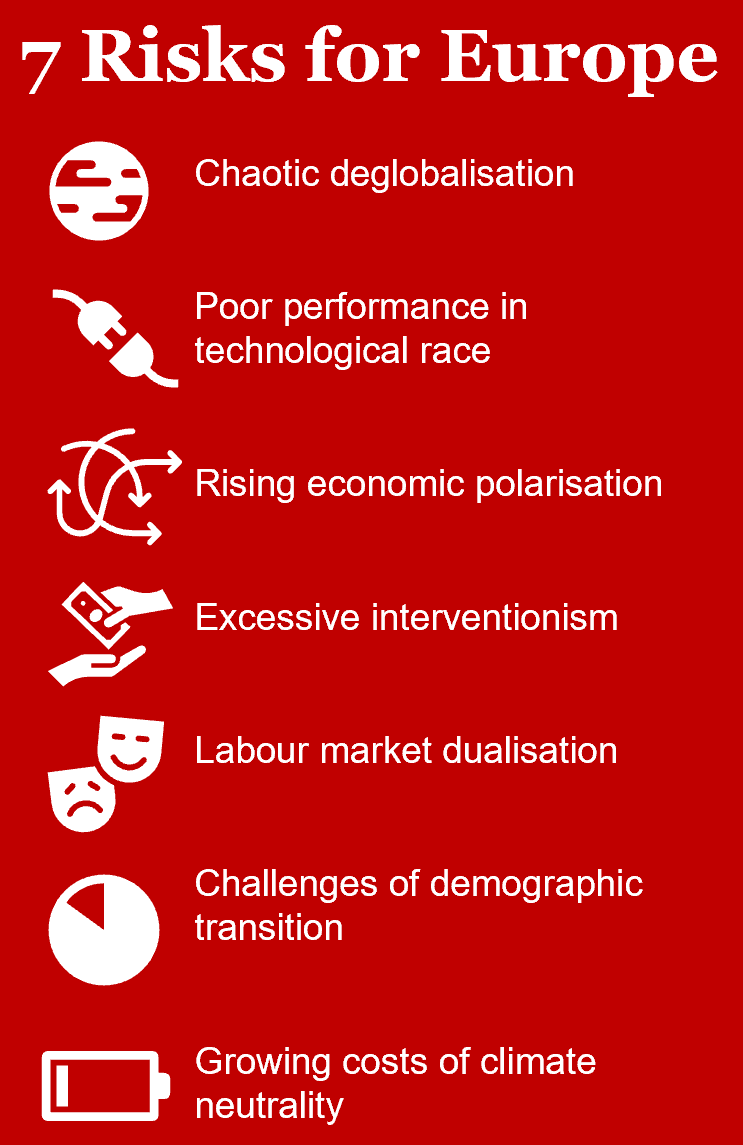Seven risks facing Europe after the coronavirus

Published: 17/11/2020
For the next three decades, the European Union is likely to be internally divided as never before, relying on a zombie economy and struggling with growing conflicts between generations and social classes.
Moreover, it will be increasingly difficult to keep up with the USA and Asian countries in the global technological race, whereas the costs of achieving climate neutrality will soar. Those are the challenges to be faced by the next generations after the European Union overcomes the corona crisis, as pointed out by the Polish Economic Institute in its report entitled ‘Europe 2050. Seven main risks in the post-COVID era’.
‘Due to the global crisis caused by the COVID-19 pandemic, we decided against writing about opportunities or scenarios for Europe and in favour of focussing on the risks involved. Both those indicated before 2020 and the threats accentuated or accelerated by the pandemic. We point to issues jeopardising the future of the European Union and to the necessary preparations on the part of the current and next European Commissions, individual Member States’ governments and citizens forming the European community,’ says Piotr Arak, the Director of the Polish Economic Institute.
The COVID-19 pandemic has accelerated various trends related to the seven risks to be faced by the European Union in the future. One of them is the need to relocate production to Europe and the USA, which will arrest globalisation at the current stage. As estimated by the World Trade Organisation in October 2020, international merchandise trade will drop by 9.2 per cent in 2020.
The EU’s losing its dominant position in world trade involves the risk of lagging behind in the global technological race. The pandemic has shown the Europeans’ dependence on external services for remote working and e-learning or cloud computing. One example is the market in smartphone operating systems, 99.4 per cent of which is controlled by two US firms: Apple and Google. Should the situation continue, it will undermine Europe’s position and threaten its internal security. Imported applications and devices will facilitate spying on and access to our data as well as content control.
Europe divided as never before
The European Union is at risk of becoming increasingly divided into the winners and losers of integration. The first wave of the pandemic showed the North-South divide in Europe. In 2021–2022, the value of grants to be received by Spain, Italy, Portugal and Greece under the Recovery and Resilience Facility will be EUR 110 billion – more or less equivalent to the total amount allocated to the other 23 EU Member States in the period in question. In the future, the polarisation of growth rates of GDP per capita may weaken the euro area. On the other hand, an increasing problem will be the dualism of the labour market that may deteriorate the availability and quality of services and lead to social conflicts related to migration policies and the development of the silver economy caused by growing demographic stratification.
‘Economic convergence and socio-economic cohesion are one of the most important treaty objectives of the European Union. However, the Coronavirus pandemic is another crisis which highlights the strong polarization of EU economies and societies. One of the greatest challenges ahead of Europe is finding answers to these increasingly articulated differences, both between countries’ development paths and differences in quality of life between social groups within countries. The temperature of the public debate around Brexit and the negotiations on the post-pandemic recovery and reconstruction program shows that these differences can fuel strong conflicts within the EU’ explains Paweł Śliwowski, the head of the strategy team of the Polish Economic Institute.
A zombie economy and a failed European Green Deal?
Fiscal stimulus packages entail significant risks as they may become permanent economic policy components. Should such a scenario materialise, accompanied by continued growth in public debts and balance sheets of central banks, it may affect the risk appetite of businesses, thus hindering innovation essential to further economic development. In such a case, it may be impossible to achieve climate neutrality. As shown by the experience of the corona crisis, the main threat to the implementation of the European Green Deal can be a dramatic rise in the costs of achieving climate neutrality or the attainment of the objective at the expense of a degraded environment.
The Polish Economic Institute is a public economic think-tank dating back to 1928. Its research spans trade, macroeconomics, energy and the digital economy, with strategic analysis on key areas of social and public life in Poland. The Institute provides analysis and expertise for the implementation of the Strategy for Responsible Development and helps popularise Polish economic and social research in the country and abroad.
Media contact:
Marcel Lesik
Senior communication specialist
marcel.lesik@old.pie.net.pl
tel. 48 510 814 659
Kategoria: Other / Press releases / Report / Reports 2020 / Sustainable Development








